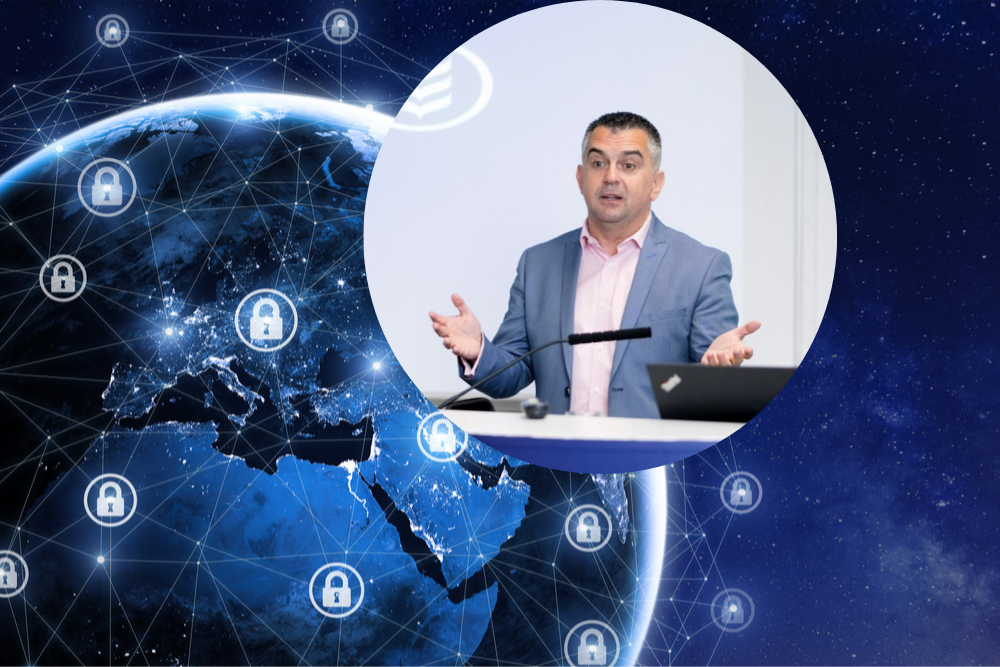Is the Metaverse a fad or the future of digital, asks Paul Swift, head of Technology, Media and Telecoms at Bank of Ireland. Closer to home, major digital developments are already happening at pace.
The terminology associated with the technology sector may be off-putting for some people as they struggle to keep pace and understand how emerging technologies will impact on their lives.
There is always the latest ‘buzzword’ being referred to in the press or online regarding the latest or must-have technology which can be daunting for some.
“The Metaverse will likely have become an overused term, perhaps decades before we see its manifestation”
Yet, in reality, much of the time the terminology becomes clichéd well before the technology itself is widely adopted and becomes ubiquitous. In recent weeks references to the “Metaverse” have grown significantly and probably requires a little explaining or at least a view on what it looks like as of today.
The first thing to say here is that, because the concept is still in the early stages, there isn’t one accepted definition of the Metaverse, largely because it doesn’t exist yet. Rather, instead various commentators are proposing different views of what it could and may look like.
There is consensus however that it is seen as the next iteration of the internet. What will it mean for people? Is it expected that it will be a shared virtual environment where augmented reality and virtual reality technologies become ubiquitous, to further blur the lines between the virtual and the real world experiences, bringing them to life in 3D.
In short, the Metaverse is seen as an immersive world where you can engage with family, friends or work colleagues.
An example could be two clinicians in disparate parts of the world, virtually examining a patient and collectively diagnosing health conditions and will enable patients to access care from healthcare professionals without being hindered by their geographic location.
The potential examples are endless and potential use cases are infinite, but as referred to earlier, the Metaverse will likely have become an overused term, perhaps decades before we see its manifestation.
VisionR receives investment from early stage fund
In May, Delta Partners announced the launch of its latest fund (DeltaIV) to invest in seed and early-stage technology businesses in Ireland. Following the launch, VisionR (formerly known as Glimpse) was announced as one of the first recipients of investment from this new fund.
VisionR specialise in providing valuable, actionable insights to traditional ‘bricks and mortar’ and omnichannel retailers capturing customer behaviour. Their platform tracks customers who enter the store, how they shop and how they react to purchasing cues. The platform also provides insights to retailers on how they can maximise revenue generation in relation to sales promotions and store layout.
The technology is relatively straightforward to implement and immediately starts to analyse shoppers using facial recognition and behavioural tracking technology, without impacting on privacy as the data that is harvested, is anonymised.
VisionR has already secured a partnership to deploy their technology with Spar International which will see their retail analytics platform rolled out across the company’s 13,500 stores in 48 countries. This early-stage investment from Delta Partners is earmarked to support further growth, expansion and recruitment of new staff.
Bank of Ireland is a cornerstone investor in this new fund along with Enterprise Ireland and also includes Fexco and several family offices.
Ireland confirms its support for the Digital Services Act
Following on from political agreement being reached by the European Council and the European Parliament on the Digital Services Act (DSA) text on 23 April 2022 last, EU Ambassadors have in recent days given their support to the Council’s approval. The European Parliament is also expected to ratify its approval soon. This now paves the way for the DSA to become EU law in the coming months, to combat and mitigate against illegal and harmful content that is disseminated online.
Those operators of search engines or online platforms that fail to comply with the new Digital Services Act face fines of up to 6% of their global revenue. The provisions of this law will in the first place, target very large online platforms and very large online marketplaces in 2023 and later to all of the other service providers in scope from early 2024. For context, those designated as very large online platforms and search engines are platforms with more that 45 million users throughout the European Union. The Government will now need to ensure that adequate resources are provided to the relevant authorities to ensure they have the necessary capabilities to enforce the implementation of these new laws as they come into force.
Irish Government beefs up cyber protection
Ireland’s Government has recently signed up to a partnership with Microsoft’s Government Security Program (GSP) joining over 40 countries and international organisations, represented by more than 70 agencies. Following the cyber-attack on Ireland’s Health Service Executive (HSE) in May of last year, a subsequent review undertaken by PwC highlighted weak IT infrastructure and lack of investment in provision of cyber-security expertise. Joining the GSP will now assist the Government in defending against cyber-attacks and protecting Ireland’s critical national infrastructure.
Harnessing Digital – The Digital Ireland Framework published earlier this year sets out strong ambitions by Government to ensure widespread access and use of inclusive digital public services, with a target of 90% of services to be consumed online by 2030. In order to meet this ambitious target, it is critical that the State’s digital infrastructure must be protected from cyber threats.
This new partnership with Microsoft GSP aims to provide enhanced protection across four key pillars: Online Source Code, Transparency Centre, Information Sharing and Exchange and Technical Data.
- Online Source Code: the ability to access and inspect source code for a variety of Microsoft products that enables program members to evaluate individual systems and functionality and check their reliability in relation to quality assurance and understand how certain features work. In simple terms Government representatives get to ‘look under the bonnet’ and ensure the coding of the technology has nothing hidden inside that shouldn’t be there, which provides comfort and de-risks the use of Microsoft suite of products.
- Transparency Centre: provides access to GSP program members/Microsoft customers with unprecedented transparency to provide confidence in the integrity and assurance of the Microsoft products and services they rely upon. GSP members can visit any one of five transparency centres around the world and conduct deep inspections of source code and the visit can be tailored to the unique goals of what a GSP member is trying to achieve. In this instance, the Irish Government are seeking to protect critical infrastructure and the inspection will likely focus on that objective.
- Information Sharing: crucially being part of the GSP will provide the government/its various agencies with exchange materials concerning threats/ vulnerabilities, malware information, and potential security issues relating to Microsoft products and services. In short, the strength of Microsoft groups and resources are being made available to help governments, such as Ireland, to protect critical infrastructure, their agencies and their citizens.
- The type of information that will now be shared includes IP addresses of infected devices, malicious URL directory (links created to promote scams or fraudulent activity), clean file metadata (identifies files that are actually from Microsoft using cryptography signatures of all Microsoft files and access to Forums that discuss cybersecurity threats and vulnerabilities.
- Technical Data: GSP members can access information and ask questions and get tailored information based on their priorities and needs, so they can have trust in Microsoft products and services and their use. This access also includes written material, engagement with Microsoft engineers to discuss practical use cases and potential engineering of specific applications.
Given that Microsoft365, SharePoint, Exchange Server and SQL Server are so widely used by Government agencies, industry and citizens alike, this program will go some way to bringing about trust in the use of their products and services while also leveraging the scale and technological advances being made by Microsoft to enhance the safety and security of Ireland’s critical infrastructure in guarding against cyber threats.





